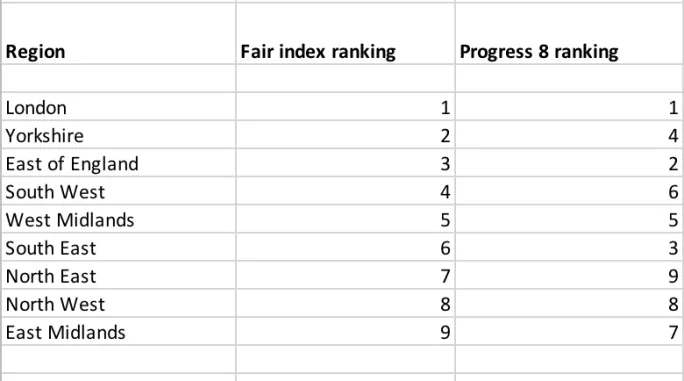Northern schools are being penalised by Progress 8 league tables that punish schools for teaching pupils from underperforming groups, according to new research.
A new study shows that schools in the North would see big improvements in their rankings if government league tables took pupils’ background into account when measuring their progress.
The report by the Northern Powerhouse Partnership has warned that the current Progress 8 measure is penalising schools for their cohorts.
Quick read: League tables ‘are rewarding and punishing the wrong schools’
Tables: Schools that do well under the new ‘fairer’ league table system
Warning: ‘Flawed Progress 8 is costing leaders their jobs’
The partnership has published a new Fair Secondary School Index, ranking schools based on an adjusted progress score - which measures factors such as gender, ethnicity and the proportion of disadvantaged pupils and those with SEND in school.
A fairer school league table?
The figures show that using this new measure would see the ranking of Northern schools improve overall.
In the North East, schools on average would be ranked 361 places higher under this new index than on the current official Progress 8 scores.
In the North West schools would be ranked 107 places higher on average; and in Yorkshire schools would be ranked 82 places higher on average.
These were the three biggest increases among the nine government regions in England.
London would see the biggest drop in the average Progress 8 ranking by 184 places followed by the South East, where schools would drop by 128 places on average.
However, London secondary schools would still be the highest average ranked region of the country.
Yorkshire would move from being fourth to second while the North East would move up from the being ranked ninth out of nine to seventh, and the North West would remain eighth out of nine.
The findings shed new light on a so-called North-South divide in educational attainment.
Former Ofsted chief inspector Sir Michael Wilshaw repeatedly warned that there was a gap in the standard of education being received in the North and South.
However, analysis by Education Datalab has previously shown that when pupils’ context is taken into account, the performance of schools in the North improves.
This view has been reinforced today by the new Fair Secondary School Index, which is part of a new study by researchers at the Centre for Multilevel Modelling at the University of Bristol.
Frank Norris, the former director of Co-op Academies Trust and current adviser to the Co-op on schools, welcomed its findings on Northern school performance and said the report highlights questions about how Ofsted uses performance data to judge schools.
He said: “The new contextual measure reveals that northern schools perform much better than previously thought and the high average achieved in London and the South East is significantly reduced.
“The existing Progress 8 data continues to be an element of the evidence used by Ofsted and the DfE in determining a school’s overall effectiveness. If contextual data is used, it may lead to a different view on a school’s effectiveness.
“The data suggests that standards of teaching and leadership may have been misinterpreted in some cases because it relied on the triangulation of evidence that overplayed the progress results of schools in more favourable communities and underplayed those in the most challenging communities.”
Henri Murison, the director of the Northern Powerhouse Partnership, which published the research, said the government has not done enough to help raise standards in the North.
He said: “Unless we devolve more powers and funding, establishing a new northern schools board to oversee currently unaccountable schools commissioners and a centre for what works in schools in disadvantaged areas, we will not be able to close the skills gap, even with much more devolution and increased funding for further education to our metro mayors and combined authorities.”
A Department for Education spokesperson said: “We want all pupils to fulfil their potential, regardless of their background, and we introduced Progress 8 to provide a fairer measure on how schools are supporting pupils to achieve their best.
“Progress 8 helps parents choose the right school for their child, specifically recognising those schools that make good progress with lower attaining pupils, and identifying those schools not doing enough with a high performing intake.”






